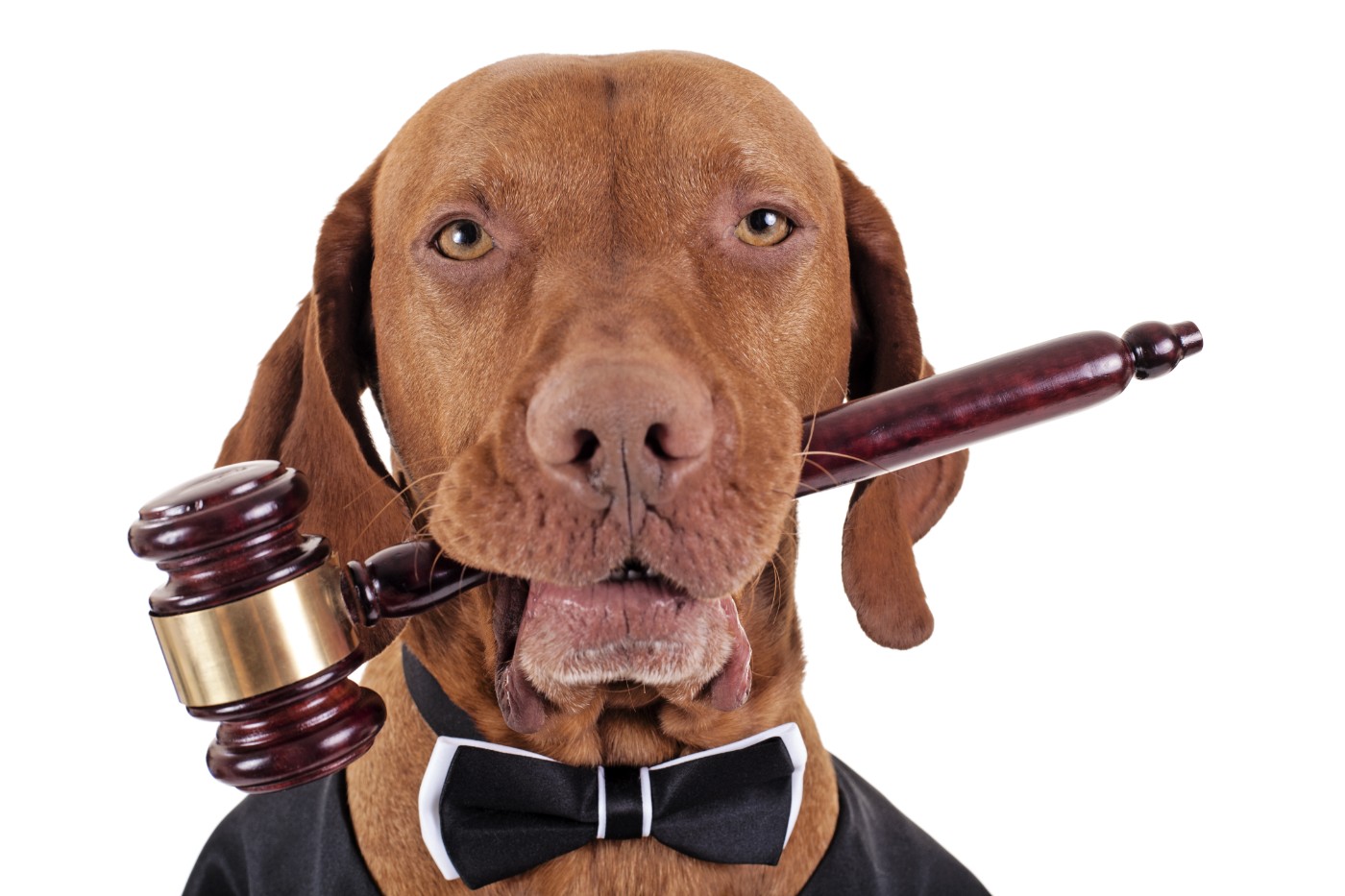In the realm of law, where precision and loyalty intertwine, emerges a curious phenomenon—the lawyer dog. From historical origins to modern applications, these canine companions have left an indelible mark on the legal landscape, embodying justice, loyalty, and unwavering determination.
Lawyer dogs, with their keen senses, unwavering focus, and innate ability to detect deception, have become indispensable partners in the pursuit of truth and justice.
Historical Origins of the Term “Lawyer Dog”

The association between lawyers and dogs has a rich historical context. Dogs have been a symbol of justice and loyalty in many cultures throughout history. In ancient Egypt, the goddess Ma’at was often depicted as a dog-headed woman, representing truth and justice.
In the Middle Ages, dogs were often used as watchdogs and guard dogs in courts and legal proceedings. This may have contributed to the perception of dogs as being associated with the legal profession.
Notable “Lawyer Dogs” Throughout History
- Humphrey, a golden retriever, was the first official “therapy dog” in the United States. He worked in the courtrooms of Judge Dale Hanaway in Michigan, helping to comfort victims and witnesses.
- Rex, a black Labrador retriever, was a service dog for a lawyer in California. He was known for his ability to sense when his owner was feeling stressed and would provide comfort.
- Baron, a German shepherd, was a therapy dog for a lawyer in New York. He was known for his calming presence and his ability to help people feel more at ease in the courtroom.
Characteristics of a “Lawyer Dog”
Dogs that exhibit “lawyerly” characteristics are often perceived as intelligent, assertive, and persuasive. These dogs may possess a combination of physical attributes, personality traits, and behaviors that contribute to their reputation as legal professionals.
One of the most notable physical attributes of a “lawyer dog” is its imposing size. Larger breeds, such as German Shepherds, Doberman Pinschers, and Rottweilers, are often associated with authority and strength, which can be perceived as desirable traits in a legal setting.
Personality Traits
In terms of personality, “lawyer dogs” are often described as being highly intelligent and trainable. They are quick to learn new commands and can be very obedient, which is essential for a dog that is expected to perform tasks in a professional setting.
Assertiveness is another key personality trait of a “lawyer dog.” These dogs are not afraid to stand up for themselves or their clients, and they are always willing to fight for what they believe in. However, they are also able to control their aggression and remain calm under pressure, which is essential for a dog that is expected to work in a legal environment.
Behaviors
The behaviors of a “lawyer dog” are also important in shaping its perception as a legal professional. These dogs are often very vocal and expressive, and they are not afraid to use their voices to make themselves heard. They are also very social and outgoing, and they are able to easily build relationships with people from all walks of life.
Training and Socialization
Training and socialization play a crucial role in shaping a dog’s “lawyerly” demeanor. Dogs that are properly trained and socialized are more likely to be obedient, assertive, and persuasive. They are also more likely to be able to control their aggression and remain calm under pressure.
Training can help a dog to learn the commands and behaviors that are necessary for a legal setting. Socialization can help a dog to become comfortable with people from all walks of life, and it can also help to reduce aggression.
Breeds Commonly Associated with “Lawyer Dogs”
Within the legal profession, certain dog breeds have gained a reputation for their perceived intelligence, loyalty, and dignified demeanor, leading to their association with lawyers. These breeds have become symbols of legal expertise and professionalism, often gracing the offices and courtrooms of attorneys.
The historical and cultural factors contributing to these associations are varied. Some breeds, such as Golden Retrievers, have been traditionally employed as service dogs, assisting individuals with disabilities, including those in the legal field. Others, like Poodles, have been associated with the upper classes and affluence, which has extended to the legal profession.
Golden Retrievers
- Known for their intelligence, loyalty, and friendly nature
- Often employed as service dogs, including in legal settings
- Anecdotes abound of Golden Retrievers providing emotional support and companionship to lawyers during stressful trials and negotiations
Poodles
- Associated with intelligence, elegance, and a hypoallergenic coat
- Traditionally favored by wealthy and influential individuals, including lawyers
- Known for their ability to adapt to various environments, making them suitable for both office and courtroom settings
German Shepherds
- Renowned for their intelligence, loyalty, and protective instincts
- Frequently used as police and military dogs, demonstrating their obedience and trainability
- Lawyers appreciate their ability to provide security and companionship, as well as their keen sense of smell, which can be advantageous in certain legal investigations
The Role of Dogs in the Legal System

Dogs have been increasingly utilized within the legal system for various purposes, proving to be invaluable assets in numerous capacities. From providing emotional support to assisting in investigations, these canine companions play a crucial role in ensuring justice and well-being.
Service Animals
Service animals, particularly those trained to assist individuals with disabilities, are commonly found in legal settings. These dogs provide essential support to their handlers, enabling them to navigate the complexities of the legal process more effectively.
- Guide dogs assist visually impaired individuals by providing safe navigation and obstacle avoidance.
- Hearing dogs alert deaf or hard of hearing individuals to important sounds, such as alarms or approaching footsteps.
- Mobility assistance dogs help individuals with physical disabilities perform tasks like opening doors, picking up objects, and providing balance.
Therapy Dogs
Therapy dogs offer emotional support and comfort to individuals in stressful situations, including legal proceedings. Their calming presence can help reduce anxiety, promote relaxation, and provide a sense of safety.
- Therapy dogs are often used to support victims of crime or trauma during court appearances.
- They can also provide comfort to witnesses, jurors, and even legal professionals who may be experiencing stress.
Detection Dogs
Detection dogs are trained to identify specific scents, making them invaluable in various legal investigations. Their keen sense of smell allows them to detect illegal substances, explosives, and even human remains.
- Drug detection dogs are used to search for illegal drugs at airports, border crossings, and other locations.
- Bomb detection dogs help ensure the safety of public spaces and events by identifying explosive devices.
- Cadaver dogs assist in locating human remains in disaster zones or crime scenes.
The Symbolism and Cultural Significance of “Lawyer Dogs”
In the legal profession, dogs hold a deep-rooted symbolic meaning, representing justice, loyalty, and protection. These attributes have been immortalized in art, literature, and popular culture, shaping the public perception of the legal system.
Portrayal in Art and Literature
Dogs have been featured in numerous works of art, often depicted as companions to lawyers or judges. These portrayals emphasize the dog’s role as a trusted confidant, offering solace and support in the often-stressful legal environment.
Representation of Justice and Loyalty, Lawyer dog
The dog’s unwavering loyalty has made it a symbol of justice. In legal settings, dogs are often seen as guardians of fairness and truth, symbolizing the unwavering pursuit of justice for all.
Emotional and Psychological Impact
The presence of “lawyer dogs” can have a significant emotional and psychological impact on the public. They evoke a sense of trust and reassurance, helping to bridge the gap between the legal system and the community it serves.
Ethical Considerations and Best Practices
Incorporating dogs into the legal system presents ethical considerations that require careful attention to ensure the well-being of the animals and the integrity of the legal process. Responsible use of dogs in legal settings demands adherence to ethical guidelines and best practices.
Animal Welfare
The welfare of the dogs utilized in legal settings is paramount. They must be treated humanely, provided with proper care and training, and protected from exploitation or harm. Ethical practices include:
- Ensuring dogs receive regular veterinary checkups, vaccinations, and necessary medical treatment.
- Providing dogs with adequate exercise, nutrition, and socialization.
- Retiring dogs from service when they are no longer able to perform their duties effectively or when their health or temperament necessitates it.
li>Training dogs using positive reinforcement methods that prioritize their well-being.
Training Standards
Rigorous training standards are essential to ensure the accuracy and reliability of dogs used in legal settings. Ethical practices include:
- Training dogs by qualified professionals using scientifically validated methods.
- Establishing clear performance standards and regularly assessing dogs’ abilities.
- Maintaining ongoing training to ensure dogs remain proficient in their tasks.
- Certifying dogs and their handlers to demonstrate their competence.
Potential Biases
It is crucial to acknowledge and mitigate potential biases that may arise when using dogs in the legal system. Ethical practices include:
- Recognizing that dogs may be influenced by factors such as their breed, training, and handler’s behavior.
- Using multiple dogs or teams to reduce the risk of individual biases affecting the outcome.
- Conducting blind tests or using double-blind procedures to minimize the influence of human biases.
- Ensuring that dogs are not used in situations where their biases could compromise the fairness or accuracy of the legal process.
Guidelines for Lawyers and Legal Professionals
Lawyers and other legal professionals have a responsibility to interact with and utilize dogs appropriately. Ethical guidelines include:
- Treating dogs with respect and compassion.
- Understanding the capabilities and limitations of dogs.
- Consulting with experts on the use of dogs in legal settings.
- Ensuring that dogs are used in a manner that is consistent with ethical principles and best practices.
Final Summary: Lawyer Dog

As we delve deeper into the multifaceted role of lawyer dogs, we uncover a rich tapestry of historical, cultural, and ethical considerations. Their unwavering presence in the legal system serves as a testament to the enduring bond between humans and canines, a bond that transcends the courtroom and extends into the hearts of all who encounter them.